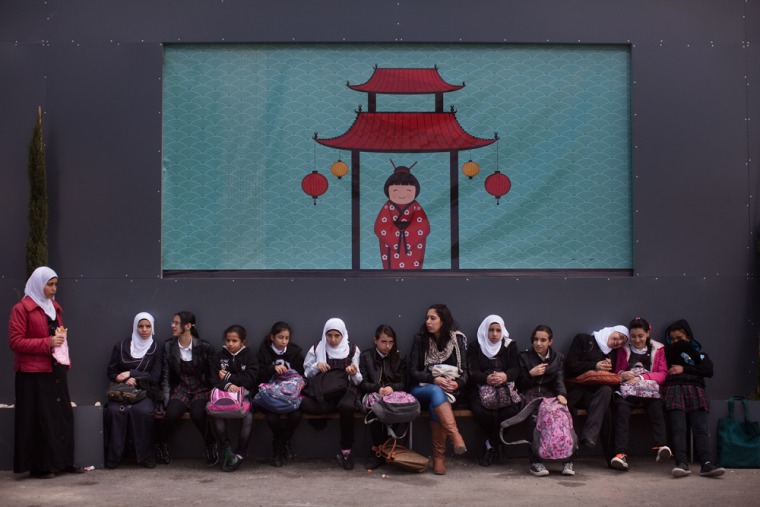JERUSALEM - A quiet culture war has broken out in East Jerusalem, the part of the ancient city that Israel conquered during the 1967 Arab-Israeli war.
Palestinian students have for the first time been given the option to study an Israeli curriculum instead of an outdated Palestinian one, hoping this will help ensure future professional success.
But now, some of the 190 students who enrolled in the program say they feel they were fooled into participating and claim they are being indoctrinated.
“They teach us Torah [the Jewish holy book] during history and Hebrew lessons. And they don’t teach us anything about the history of Palestine,” said A.J., a 13-year-old student who enrolled in the pilot program last year in hopes of eventually being accepted into an Israeli university.
Families of students interviewed about the program, which was unveiled in 2012 in the Ibn Rushd Boys School and rolled out in four other schools earlier this year, asked not to be identified out of fear that they would be punished by school officials or local authorities.
Among the complaints that some Palestinians have about the Israeli curriculum is that it teaches that Jerusalem is united, and that it is the capital of Israel.
The curriculum also uses the Biblical terms Judea and Samaria to describe the West Bank, which Israel has occupied since 1967, but which Palestinians hope will one day form part of their independent state. While Israel cites historical claims to the West Bank, the United Nations considers the occupation illegal and most world powers say Israeli settlements there stand in the way of peace.
A.J.’s father said he initially thought the Israeli curriculum – which allows students to take the exams necessary to apply to Israeli universities – would open up more opportunities for his son.
“They didn’t say they will teach him Torah. So we were fooled. They want to make my son forget his cause,” he said. A.J.’s father said he has requested his son drop the Israeli classes.
Ibrahim Al-Khatib, principal at Ibn Rushd in Sur Baher, a neighborhood of East Jerusalem, disagrees with the boy, his father and others complaining about the curriculum. The Israeli material is “more comprehensive and objective, especially in sciences and the Hebrew language,” he said.
A high level of Hebrew is essential to get into Israeli university, and not being completely fluent in it handicaps many Palestinians students.
According to Israeli census figures, Palestinians form more than a third of the population of the whole of Jerusalem. Still, the population is under-served, according to Israel’s oldest civil rights organization ACRI, which says there’s a shortage of 2,200 classrooms in East Jerusalem’s schools.
Indeed, it was Palestinian parents who first asked for the Israeli curriculum, according to Lara Mbariki, who is the official in charge of education in East Jerusalem.
She dismissed the idea that studying an Israeli curriculum hurt Palestinian students’ sense of identity.
“It’s not just books that affect your sense of identity, but also your upbringing and your immediate environment,” she said.
Zakaria Odeh, executive director of the Civic Coalition for Defending the Palestinians’ Rights in Jerusalem, disagreed.
“Education is an act of occupying the mind and thought, he said. “A house or a street that have been demolished could be rebuilt, but if a person is destroyed intellectually and culturally, it is very difficult to restore him.”
Related:
